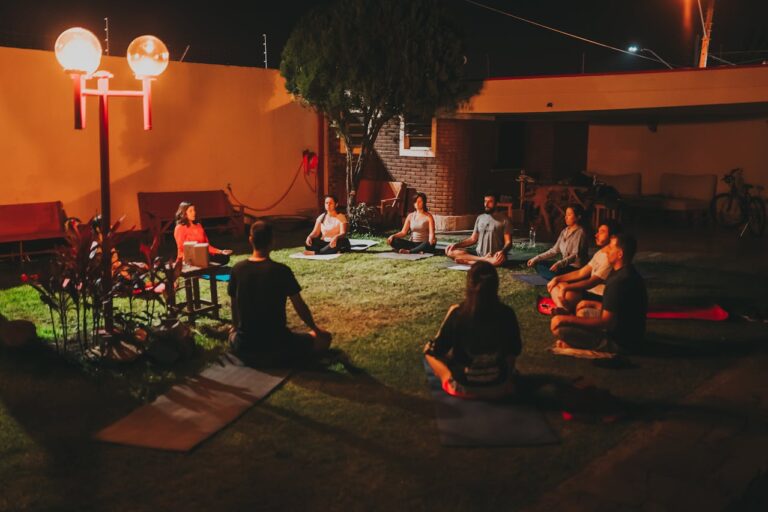Write Us: hello@ali5.org
The Science of Rest: Why Doing Nothing Is Sometimes the Healthiest Choice
Discover why doing nothing can sometimes be the healthiest choice. Learn the science of rest, its benefits for the body and mind, and how to make it part of your routine.

The world we live in encourages us to be busy all the time. Being busy is now a sign of success. It can feel like you’re losing time if you’re not working, working out, going to events, or crossing things off your list. You should do things, but rest is just as important. Doing nothing and letting your body and mind rest can be one of the best things you can do.
Resting is not being lazy. Science backs up the idea that it’s a biological need that impacts your health, mental clarity, and general well-being. How you feel and how well you do every day can change if you know why rest is important and how to fit it into your life.
Why rest isn’t just sleep
Almost everyone thinks of lying in bed or taking a nap when they need to rest. But rest isn’t just sleep; it’s any action (or lack of action) that lets your brain and body heal. Among these are:
- Sitting still and not being interrupted
- Enjoying reading a book
- By meditating
- Putting on music
- Just thinking
The important thing is that you choose to rest. It stops your body from being stressed out, moving, and taking in information all the time.
Why rest is good for you
Our bodies are made to move back and forth between active and restful states. Not getting enough rest can mess up these normal cycles, which can cause health issues.
1. Less stress hormones
The body’s worry hormone, cortisol, rises when you are mentally or physically active for a long time. When you have high cortisol for a long time, it can make you gain weight, get high blood pressure, and weaken your immune system. Cortisol levels drop when you rest, which lets your body heal.
2. Better heart health
Your heart rate and blood pressure go down when you take time to relax. Studies have shown that taking regular breaks can lower your chance of heart problems by reducing the stress on your heart.
3. Getting muscles stronger and lessening pain
You put stress on your muscles and joints every day, even if you’re not working out. Doing nothing for a while can help your muscles heal and ease tightness in places like your neck, shoulders, and lower back.
4. Stronger immune system
Your immune system gets weaker when you’re stressed, which makes you more likely to get sick. Resting on purpose brings order back to your life and helps your immune system work at its best.
Why taking a break is good for your brain.
Rest is just as important for emotional health and brain function as it is for physical health.
1. More creative ideas
Your brain doesn’t have time to fully process knowledge when you’re always busy. When you don’t do anything, your thoughts can wander, which is great for coming up with new ideas and solving problems.
2. Memory and focus are better
Taking a break gives your brain a chance to reset your attention span, organize your thoughts, and make new memories. When people go on breaks, they often come back to work more focused and ready to work.
3. Controlling your emotions
Giving your mind a break lets your emotions adjust. Small problems can become too much to handle if you’re always on the go. During quiet times, your brain can help you control your mood and become less irritable.
4. Less decision fatigue
It takes mental force to make every choice, no matter how small. Resting on purpose makes your brain less busy, which helps you make better choices later in the day.
Why doing nothing is scientifically sound
A lot of interesting things have been learned about the difference between “active rest” and “doing nothing.” One study found that even small amounts of quiet sitting made people happier, less stressed, and smarter. A different study found that people who took breaks during the day were more creative and productive over time.
Another thing neuroscientists talk about is the default mode network, which is a part of the brain that works when you’re not paying attention to something. This network helps us deal with our feelings, remember things, and come up with new ideas. Not doing anything isn’t a waste of time; it’s good for your brain.
Why We Don’t Want to Rest
Many people don’t rest even though they know it’s important. Some common reasons are:
- When you feel guilty, you think you should always be doing something.
- Fear of missing out, thinking that other people are working hard, or that your free time is lost.
- Technology addiction: It’s hard to disconnect from phones, social media, and alerts all the time.
- Culture: In many places, being busy is seen as a sign of success, which makes rest seem like the opposite of what you should do.
The first step to making rest a goal is to be aware of these problems.
How to Make Time for Rest in Your Day
Rest is good for you, even if you don’t take a week off. Small breaks that are planned ahead of time can make a big difference.
1. Plan breaks for rest
Every day, do nothing for 10 to 20 minutes. Do not look at any screens, work, or do any chores. Just breathe and sit still.
2. Do things that make you aware
Your mind and body can relax by meditating, doing light yoga, or just noticing what’s going on around you.
3. Limit time spent in front of a screen
Even though scrolling through social media can make you feel calm, it makes your brain work too hard. Instead of spending time in front of a computer, try reading or quiet reflection.
4. Do some “micro-rests.”
You can restart your system with as little as a few minutes of deep breathing at your desk, a short walk with no plan, or closing your eyes and stretching.
5. Make it socially acceptable to rest
Tell your family or coworkers to be quiet when you need to be alone. Make not doing anything a good, necessary habit.
How to Tell If You Need More Rest
Sometimes it’s not clear when you’re out of fuel. Some common signs are:
- Having trouble concentrating or remembering things
- Getting angry or having mood swings
- Always tired even though I get enough sleep
- Headaches or more muscle tightness
- Having a hard time with small jobs
If these things happen, it means you need to schedule some downtime right away.
Rest is not being lazy; it’s a smart move.
Rest does make you more productive, focused, happy, and even better at controlling your weight. If you do nothing on purpose, your body and brain can heal, reorganize, and recover. Time off is an investment, not a luxury. Remember this the next time you want to “just keep going.”
Last Thoughts
Doing nothing might seem strange at first, especially in a world that likes people to be It could seem unusual at first to do nothing, especially in a world that prefers people to be busy. On the other hand, getting enough sleep is excellent for you, helps you, and makes you happy. Take breaks, listen to what your body is telling you, and spend some time alone. On the other hand, getting enough rest is helpful, good for you, and makes you happy. Listen to what your body is saying to you, take breaks, and spend some time alone. This will help your energy, mood, and ability to concentrate.
Remember that rest is a strength, not a weakness. When your calendar gets too busy, take a step back, breathe, and do nothing. You’ll feel better in your body and mind.







